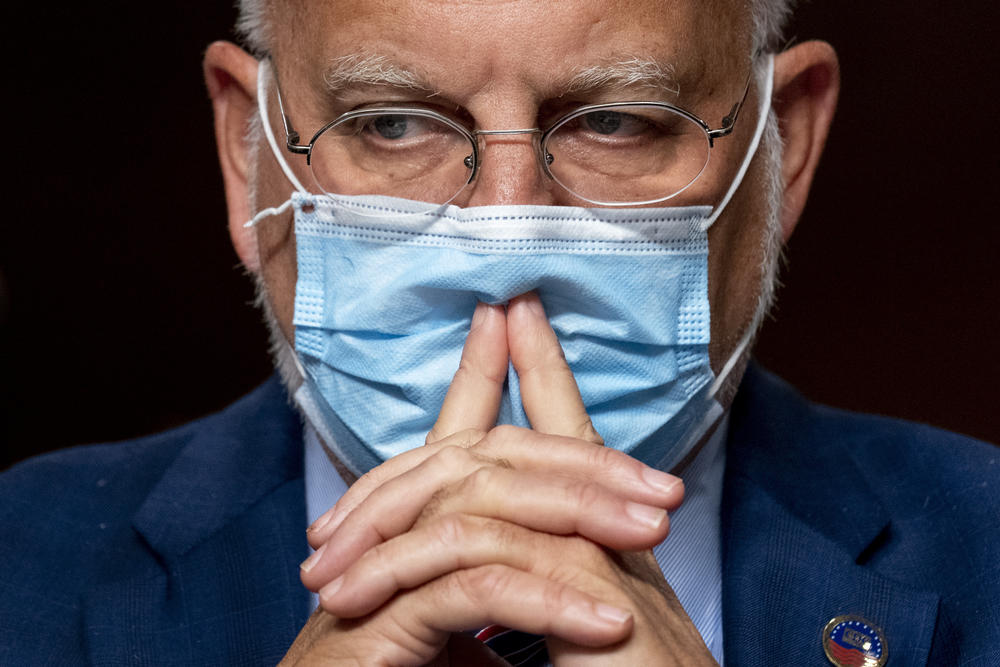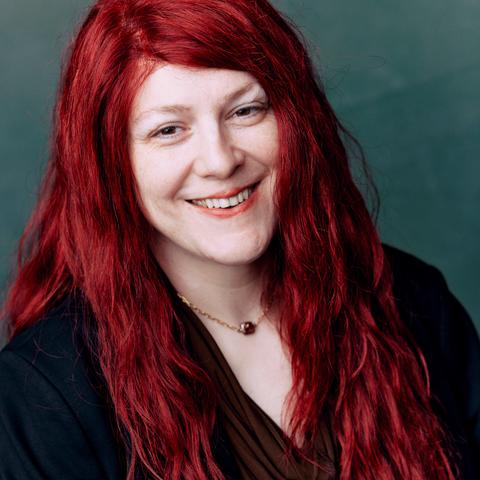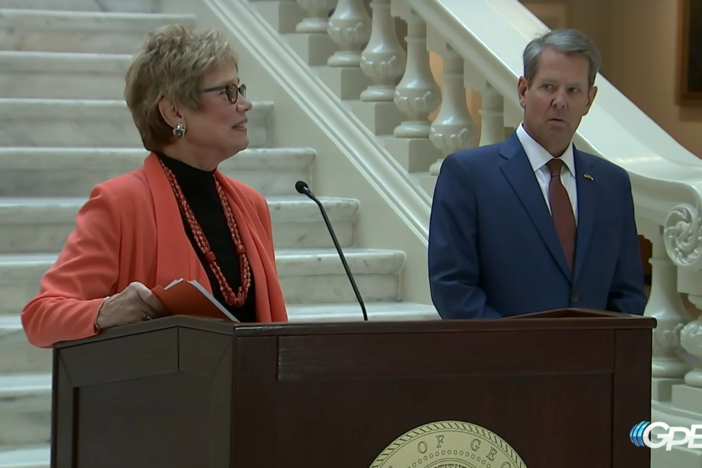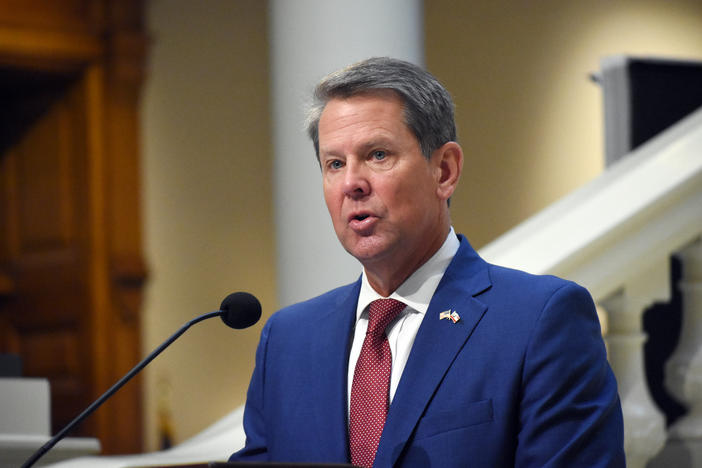
Caption
In this Sept. 16, 2020, file photo Centers for Disease Control and Prevention Director Dr. Robert Redfield appears at a Senate Appropriations subcommittee hearing on a "Review of Coronavirus Response Efforts" on Capitol Hill in Washington.
Credit: AP Photo/Andrew Harnik, Pool, File



